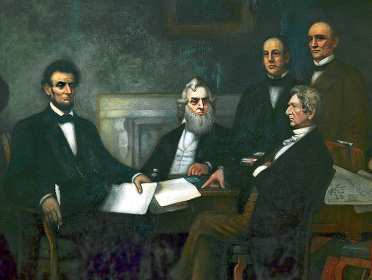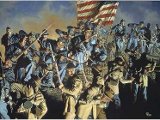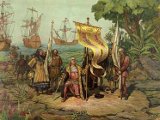Why Did the North Win the American Civil War

Table of Contents
- The North's Advantage in Population and Resources
- The Ratio in Manpower between the North and South
- Railroad Links, Monopoly in Shipping and Naval Blockade
- Northern Industry
- Failure of the “King Cotton diplomacy”
- Re-election of Abraham Lincoln as the President of the United States
Quick Facts
Factors that played the key role in North's victory include:- numerical superiority
- excellent railroad links
- monopoly in shipping
- industrialized economy
- neutrality of the European great powers
The North’s Advantage in Population and Resources
The American Civil War was won on the battlefield but several factors played an important role in the outcome of the deadliest war in the American history. From today’s perspective, the North’s victory seems obvious, especially due to its major advantage in population and resources but the Confederates had several factors in their favor and the outcome of the war was impossible to predict.
The Ratio in Manpower between the North and South
One of the main reasons for the Union’s victory in the American Civil War was undoubtedly its numerical superiority. At the outbreak of the war, the North had a population of 19 million in contrary to South that had slightly over 9 million of people including with 3,5 million slaves which means that the ratio in manpower was four to one. Furthermore, the Union forces could also count on another 3,2 million people from the loyal slave states, tens of thousands of European immigrants and both freed and escaped slaves who were able to join the Union Army after the Emancipation Proclamation. However, it was the ability of the Union generals to take advantage of the numerical superiority on the battlefield.
Railroad Links, Monopoly in Shipping and Naval Blockade
In addition to its advantage in population, the North controlled railroads and shipping both of which played a major role in the outcome of the American Civil War. Excellent railroad links enabled fast and inexpensive transportation of both the soldiers and supplies which were the key for modern warfare. Monopoly in shipping and the Navy enabled the Union to control the river systems and impose blockade on the Atlantic coast preventing the passage of goods, supplies and weaponry to and from the Confederate States.
Northern Industry
Northern industrialized economy was another factor that helped the Union turn the war in its favor. The Northern industry supplied the army with arms, munitions and all the necessary equipment as well as food, while the South did not have the facilities for mass weapon production nor was able to feed its forces and much less the civilian population. The Confederate States produced enough food for both the soldiers and civilians but they had serious difficulties in transportation of the surpluses due to underdeveloped rail infrastructure.
Failure of the “King Cotton diplomacy”
The so-called “King Cotton diplomacy” that was the Confederacy’s best hope to win the war turned out to be a failure. The Confederate States even accepted the Union’s naval blockade hoping that the shortage of cotton supply will force Britain and France to intervene in the war. However, Europe had enough cotton and by the time it had faced shortage, European industry easily replaced the American cotton from alternative sources such as India and Egypt. In addition, poor harvests in the early 1860’s increased the demand for Northern crops rather than Southern cotton making “King Corn” by far more important than “King Cotton”.
Re-election of Abraham Lincoln as the President of the United States
After the Union’s capture of Atlanta and Abraham Lincoln victory in the United States Presidential election of 1864, the Confederate defeat was only a matter of time. At that point it became clear that European powers prefer the status quo, while Lincoln finally succeeded to gain full support of the border states.




